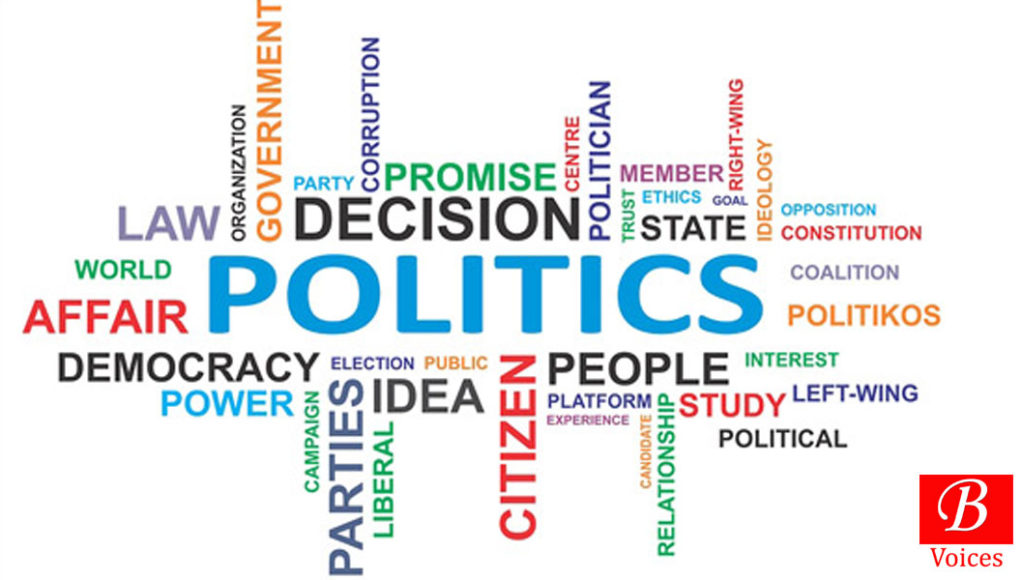Saddam Shah
The socio-political makeup of Balochistan, least populated but largest territorial land, is a unique one in the country that has been lacking strong infrastructural connectivity, now seems improving, within its thirty-four districts and with other provinces but strongly connected within tribes. Hence. exclusive, limited, traditional and divided politics has been ruling the province since its inception.
It is true that educationally being the most illiterate and socially much traditional province, neither its people have explored, experienced and learned from outside nor it has been adequately understood and analyzed by the non-locals.
There could be three options for any society to move forward, as S.P Huntington explained in ‘The Clash of Civilizations’, i.e. band-wagon with current trends, come with other unique alternative or retain its isolation. Balochistan had been opting the last option, which has not borne any fruit for its people, for many decades.
There have been two sorts of politicians in this constitutional unit, i.e. ideological, based on religion or ethnicity and personality-orientated but both are equally impacted by kinship, tribalism, back support of state institutions and role of local influential families.
It would be wrong to subdue all politics under feudalism, as mostly, from outside, perceive and recognize it as a determining factor behind all odds of the province.
That has been generalized in Balochistan, which is not the case in most of the areas of the province but tribalism, based on caste and sub-castes, and kinship are the most influential factors in determining political destiny and that could be witnessed in its local body elections even, which is among common people and then, of course, its social life, most of the vast barren land and mountains are other evident for the lack of feudal monopoly.
Former Colonialism empowered head of the tribes in Balochistan by certifying them while constituting feudalism in other parts of sub-continent and the present state system retained that due to the lack of direct intercourse with majority people. But this has been more in administrative affairs than political arena and gradually people are increasing their contacts with the state institutions that would diminish the influence of certified families.
It is important and required to challenge status-quo and move with the world at a normal pace but at the same time should maintain its uniqueness to a flexible limit.
Ethnic-based nationalist politics has substantially challenged the kinship oriented politics and helped in larger turnout, being more progressive than kinship and so is of religious parties though reactionary. Unfortunately, both are exclusive, emotional and conservatives and have not been successful to reform political culture in a best possible way.
This is being done through youth activism in educational institutions by nationalist progressive-conservative politics and religious-based politics is promoted among Madrassa-going students and common people, as these both types of politics need robust propagation and activism to grab votes but the dilemma remains similar, this way of politics is less based on the quality of public policy and much on emotional exploitation.
What Balochistan needs in its politics is rational inclusion rather remaining in a circle of people having certain characteristics and despite political awareness, it has not socio-politically developed the way it deserves and for that, what has been, should never be made the future course if its broader objective is constructive and towards development with a tempo to go with other parts of the country and the world.
Election Commission in the unit can take the task of making people cast their votes rooted on quality of policies through awareness and mock practices and political parties should be asked to contest their manifestoes based on legislative proposals rather hate-speeches, so that, in upcoming elections, there could be maximum turnout and more votes for the best quality of legislative agendas.
The election is a democratic practice but it is also an opportunity to create and nurture a culture of openness, constructive criticism, the direction of public policies and in short, the means and ends of collective life.
Youth can give a color to the socio-political understanding of people by promoting a visionary approach among people to pursue and practice.
They can work as a natural and real pressure group and can contribute immensely from wherever they are, both on the ground and through a vigorous social media engagement, which is organized and consistent.
Unfortunately, youth currently are manipulated due to their emotions and energy but same youth can beneficially utilize their energy and emotional dedication in a positive way for their society and that is obviously, not by abandoning politics but directing it towards a better track and may coerce politicians to do a sort of policymaking that is broadly in the favor of public.
Political parties are there for legislative responsibility and not to construct roads, bridges, schools and dams but such legislation should be efficient and effective to cover all these minor issues. In upcoming elections, if at least, political advocacy of few political parties is done on basis of public policy rather emotional lines, it may serve as a start-up for an environment towards socio-political maturity.
Most of the issues in Balochistan are social, which are given political color to pursue political interests and that divides people despite their collective objectives.
Due to lack of any pressure of research institutions, think-tanks, vibrant civil society, media group and political competition based on the efficiency and reasoning of public policy, the socio-political culture of the province is a mix of extreme violent and non-violent conservative emotions, exploitation of kinship and tribal system, state-institutional unwilling back, the personality cult and the absence of collective direction.
It would be unfair to consider everything wrong about the province rather despite its all potential, Balochistan has not attained what it truly deserves and that is due to the missing leadership but with the existing willpower of people. This gap can be filled by all those who enable others to lead themselves and their society rather than waiting for any angle-leader to lead the rest, however, youth can be hopeful catalyst in this vital process to reform the living standard of their six percent people of the country and not only bless their province but also contribute nationally and globally.
 The writer belongs to Quetta and He is Studying Defence and Strategic Studies at QAU, Islamabad. Area of Interest of the writer includes Politics and Socio-economics developments of Balochistan, South Asian Politics, Non-State Actors, Terrorism and CT strategy, Globalization and Cyberwarfare. Follow him on Twitter @Saddam_Shah98. Email: [email protected]
The writer belongs to Quetta and He is Studying Defence and Strategic Studies at QAU, Islamabad. Area of Interest of the writer includes Politics and Socio-economics developments of Balochistan, South Asian Politics, Non-State Actors, Terrorism and CT strategy, Globalization and Cyberwarfare. Follow him on Twitter @Saddam_Shah98. Email: [email protected]
Disclaimer: Views expressed in this article are those of the author and Balochistan Voices not necessarily agrees with them.
Share your comments!








